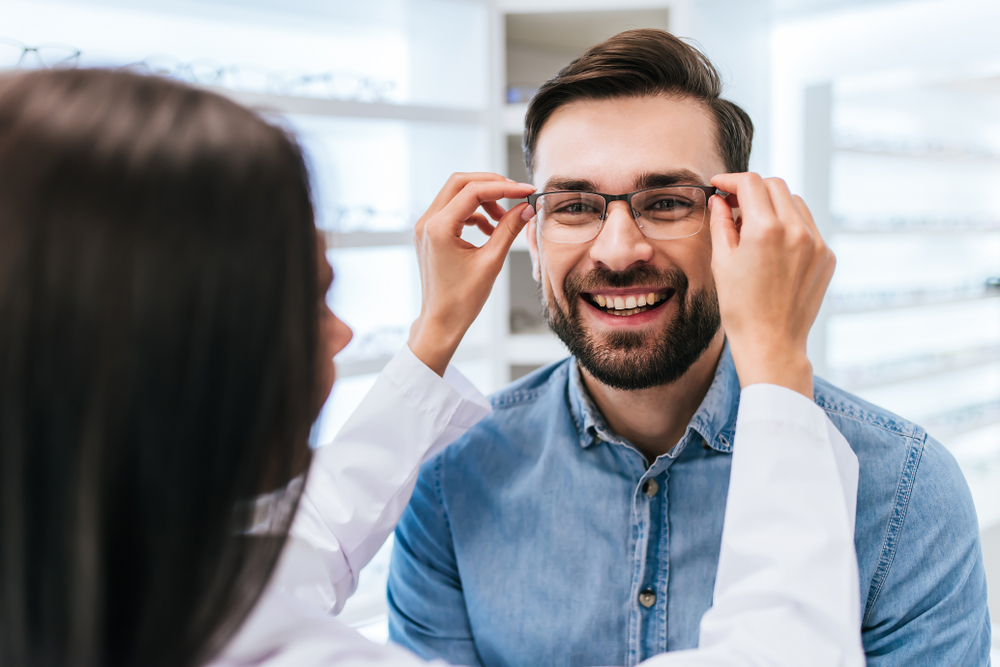Think of your eyes as sophisticated cameras that capture every precious moment of your life. Just as a camera needs regular maintenance to function at its best, your eyes require consistent professional care. At Rim Optical, we’re dedicated to helping you understand why regular eye examinations are fundamental to preserving these invaluable organs.
Understanding Your Eye Health Journey
Your eyes undergo subtle changes throughout your life, much like how a photograph gradually fades over time. These changes often happen so slowly that you might not notice them until they significantly impact your vision. We specialize in detecting these subtle shifts before they become noticeable problems, much like how a skilled photographer can spot early signs of camera wear that might affect picture quality.
The Science Behind Comprehensive Eye Exams
When you visit us for an eye examination, we embark on a detailed exploration of your visual system. Imagine your eyes as a complex network of interconnected parts, each playing a crucial role in your vision. During your exam, we carefully evaluate each component, much like a master watchmaker inspecting the intricate gears of a precision timepiece.
Early Detection Makes a Difference
Eye examinations are not just for vision checks as most people think. They can also provide valuable insight into your overall optimal health. Regular eye exams can detect several eye conditions before they become a big problem, allowing for higher chances of recovery.
- Glaucoma: Known as the “silent thief of sight,” glaucoma damages your optic nerve due to high pressure within your eye. Early detection through regular pressure tests is crucial because once vision is lost to glaucoma, it cannot be recovered.
- Cataracts: This condition occurs when the natural lens in your eye becomes cloudy, like a clear window turning foggy. While cataracts typically develop slowly, early detection allows us to monitor their progression and plan for treatment before they significantly impact your daily activities.
- Macular Degeneration: This condition affects your central vision, making it difficult to recognize faces or read. Early detection and treatment can help slow its progression and preserve your remaining vision through specialized medications and lifestyle modifications.
What to Expect During Your Eye Exam
- Medical History Review: We begin by discussing your overall health, family history, and any vision concerns you may have. This information helps us tailor the examination to your specific needs and risk factors.
- Visual Acuity Test: You’ll read letters from a chart at various distances to measure how clearly you can see. This fundamental test helps us determine if you need vision correction or if your current prescription needs updating.
- Refraction Testing: Using specialized equipment, we determine your exact prescription by having you look through different lenses. This process ensures we find the perfect correction for your unique vision needs.
- Visual Field Test: We check your peripheral vision to ensure you can see objects in all directions. This test helps detect conditions that might affect your side vision.
- Eye Pressure Test: Using gentle methods, we measure the pressure inside your eyes to screen for glaucoma. This quick and painless test is crucial for early detection.
- Dilated Eye Exam: We place drops in your eyes to widen your pupils, allowing us to examine your retina thoroughly. This detailed view helps us spot potential problems in the back of your eye.
A comprehensive eye exam typically takes between 45 minutes to an hour, depending on the specific tests needed and whether your pupils need to be dilated. If dilation is necessary, you’ll need to allow extra time as the drops take about 20-30 minutes to work fully. Remember that this time investment is crucial for a thorough evaluation of your eye health.
Benefits Beyond Vision
- Diabetes: During an eye exam, we can spot small blood vessel changes in your retina that might indicate diabetes before other symptoms appear. Early detection allows for prompt treatment and better management of the condition.
- High Blood Pressure: Your eyes’ blood vessels can show signs of high blood pressure through distinctive patterns of narrowing and other changes. Identifying these signs early helps prevent potential complications throughout your body.
- Certain Cancers: Some cancers can affect the eyes directly or cause visible changes that we can detect during an examination. Early detection can lead to more successful treatment outcomes.
- Autoimmune Disorders: Many autoimmune conditions cause inflammation that can be visible in your eyes. Detecting these signs early helps in managing both your eye health and overall well-being.
How Often Should You Have Eye Exams
Regular eye examinations are your first line of defense against vision problems and eye diseases. Just as you schedule routine check-ups with your doctor or regular maintenance for your car, your eyes need consistent professional attention to maintain optimal health. The frequency of these examinations varies based on several key factors, including your age, overall health, family history, and existing vision conditions. Understanding your personal risk factors and recommended examination schedule helps ensure you’re protecting your vision effectively.
- Children (0-17 years): We recommend the first eye exam at six months of age to check early development. After that, children should have their eyes examined at age three, before starting school, and every one to two years throughout their school years to support academic success and detect any vision problems that might affect learning.
- Young Adults (18-39): If you have no risk factors or vision problems, an eye exam every two years is typically sufficient. However, if you wear contact lenses or have a family history of eye disease, annual examinations are recommended to monitor your eye health closely.
- Adults (40-64): As you enter your 40s, your eyes begin to change more rapidly. We recommend eye exams every two years, or annually if you have risk factors like diabetes, high blood pressure, or a family history of eye diseases. This is also when conditions like presbyopia (difficulty focusing on close objects) commonly develop.
- Seniors (65+ years): Your risk for age-related eye conditions increases significantly after age 65. Annual comprehensive eye examinations are essential at this age to monitor for conditions like cataracts, glaucoma, and macular degeneration. Early detection of these conditions can lead to more effective treatment outcomes.
- Contact Lens Wearers: If you wear contact lenses, you should visit us annually to ensure your lenses fit properly and aren’t causing any complications. These visits also allow us to update your prescription and check for any contact lens-related eye health issues.
- High-Risk Individuals: People with diabetes, high blood pressure, or a family history of eye diseases may need examinations every six months to a year. Regular monitoring helps us detect and address any changes in your eye health promptly.
- Digital Device Users: If you spend significant time looking at screens or experience frequent headaches and eye strain, we might recommend more regular check-ups. These visits help us monitor how digital device use affects your vision and suggest appropriate solutions to reduce eye strain.
Take Action for Your Eye Health
Don’t wait until you notice vision problems to schedule an eye exam. Contact Rim Optical today to book your comprehensive eye examination. Our experienced team is ready to help you maintain optimal eye health for years to come.
Call us at (512) 764-6850 or visit our website to schedule your appointment. For more eye health tips and updates, follow us on Facebook. Your vision is our priority – let’s work together to protect it.
Your eyes deserve the best care possible. Schedule your comprehensive eye exam with Rim Optical today and take the first step toward ensuring your long-term eye health.


